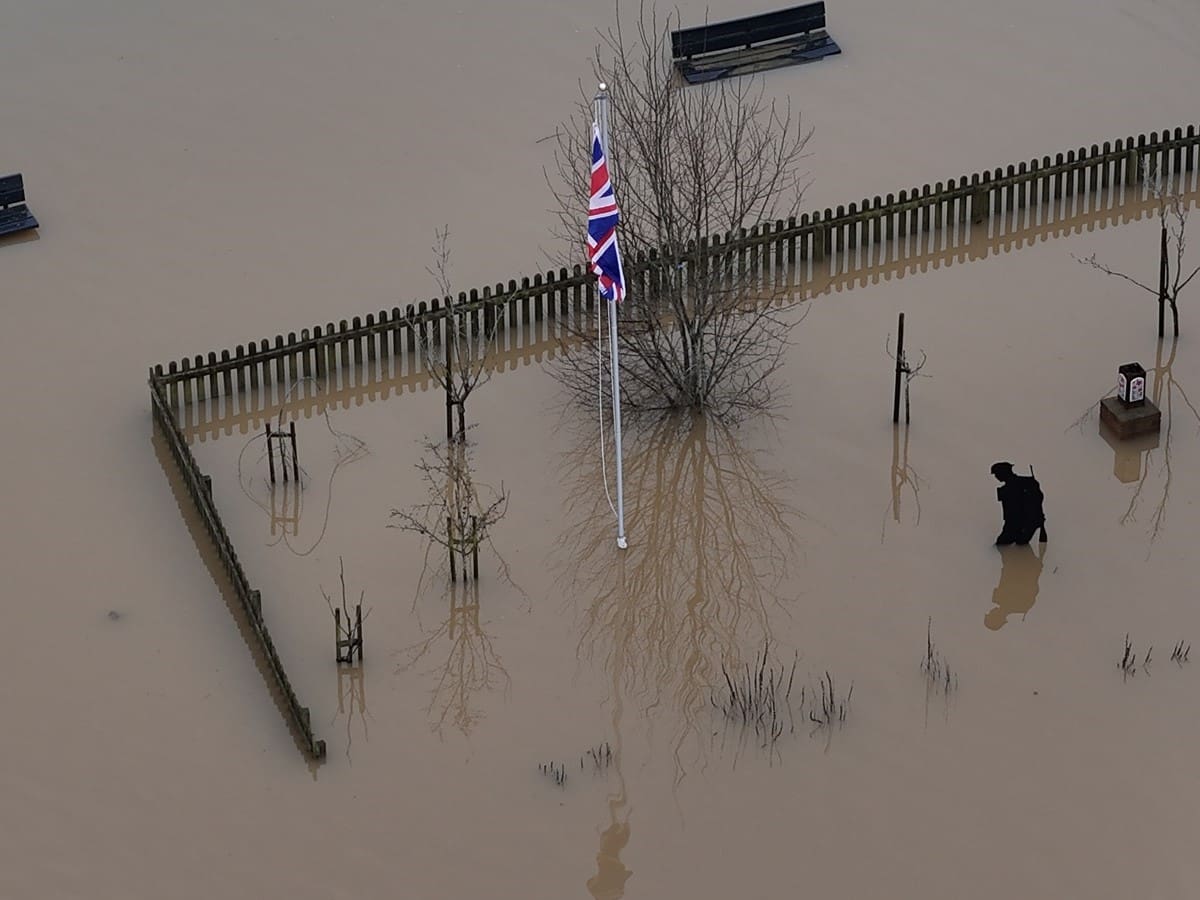The UK’s independent climate advisor, the Committee on Climate Change, has issued its latest assessment of the government’s plans to protect the country from the climate crisis. Specifically, it has looked at impacts such as flooding, extreme heat, and water scarcity.
The report is damning – showing the Tories are still not doing enough.
One climate solutions charity has branded the report as showing government inaction will “cost lives”.
Committee on Climate Change: government still has no ‘credible’ plan
The Committee on Climate Change has yet again called out the government’s approach to adaptation in its Third National Adaptation Programme (NAP3), as ‘not working’, ‘inadequately funded’ and lacking ‘the frameworks needed to track adaptation and climate risk effectively’.
As Business Green reported, the Committee on Climate Change:
warned that while the strategy represented an improvement on previous adaptation programmes, the latest NAP’s still fails to provide a credible vision for how the UK economy can be made resilient in the face of the the climate risks already impacting British people and businesses.
It argues the NAP’s status across government departments remains too low, that a failure to deliver effective adaptation measures over the course of the current five-year programme increases the risk of locking-in poorly adapted infrastructure that will not be resilient to future impacts, and warns that in the region of £50bn in additional investment is needed each year by 2030 to put the UK on track to meet its net zero goals.
Moreover, as Business Green noted, the report:
says the new NAP is still not sufficiently well-understood or resourced, particularly in local government, and that the present approach to coss-government coordination from Defra is not working.
The Committee also claims adaptation measures in the UK are insufficiently funded, and that NAP3 does not effectively tackle barriers to investment – such as the low perceived urgency of adaptation, the lack of clear targets from government, and the limited understanding of effective adaptation actions.
‘Inadequate, ‘ill-prepared’, and ‘life-costing’
The Committee on Climate Change’s conclusion is stark:
If the current programme is not developed and strengthened, the UK will be exposed to higher levels of damaging risks from climate change that have the potential to fundamentally compromise aspects of our society.
Will Walker, UK Policy Lead at climate change charity Ashden, commented:
Make no mistake, the government’s inadequate and ill-prepared plans to build climate resilience will cost more lives and livelihoods if not urgently addressed.
In the 2022 heatwave, 60,000 Europeans died with heat-related causes, and these temperatures are expected to become the norm by 2050. Without accelerating emissions reductions and putting adaptation front and centre in the next Parliament, as the CCC recommends, we’ll all pay the price but those least well off, with fewer options to cope will suffer the most.
Across the UK, there are already various projects where adaptation measures are up and running. The government should learn from these, and do more to support them.
As the Canary previously reported, schemes from Hampshire to Dundee show the potential of nature-based solutions, energy efficiency, and low carbon energy innovation. Ashden says these interventions will help communities stay safe, warm and cool, adapt to extreme weather, and also create stronger economies and greater wellbeing.
It says these wider benefits are crucial to winning public support for climate action.
Committee on Climate Change: not woke, but right
The London boroughs of Enfield and Hackney, along with Liverpool and Hull city councils, have implemented new wetlands, flood defences, and green spaces. Nature-based solutions provide natural cooling, water capture, and flood protection.
As Walker summed up:
The good news is that we know what works and, when delivered at the local level, measures to increase resilience are often more cost-effective and deliver multiple co-benefits such as more comfortable buildings, cleaner air, and green and blue spaces that increase physical and mental well-being.
The Committee on Climate Change is not some activist-led, ‘woke’ group of ecowarriors. It’s chaired by a former Tory MP and now Tory peer. So, for it to still be criticising the government is perhaps a measure of just how bad things are.
Featured image via wirestock – Envato Elements




